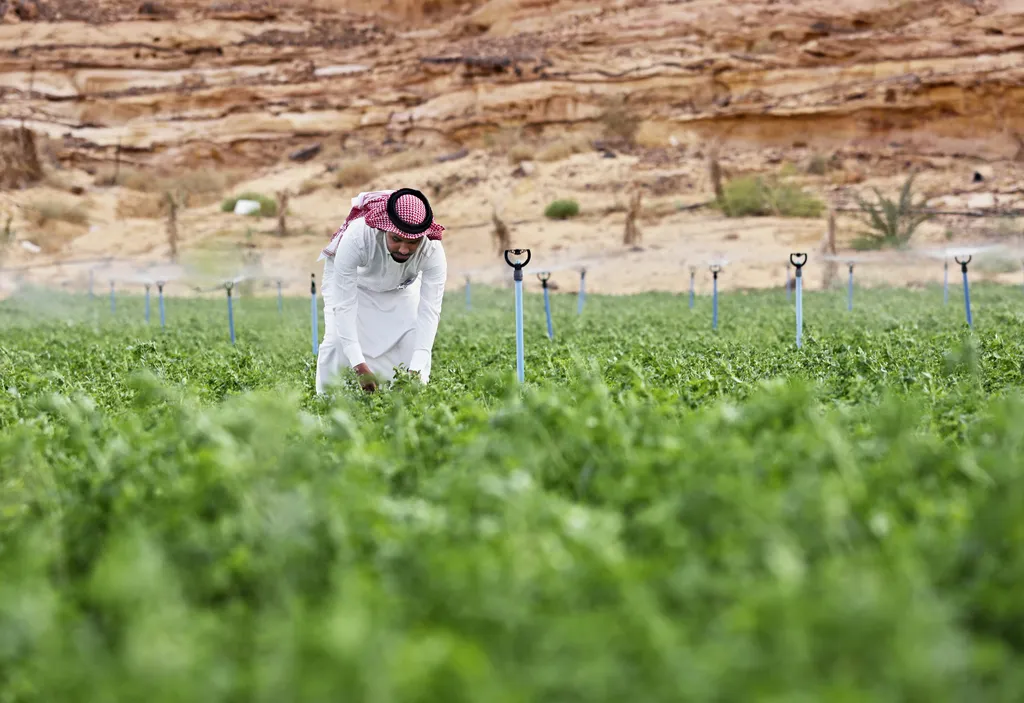In the heart of Saudi Arabia’s Al-Ahsa region, a groundbreaking study led by Othman Al-Dossary from King Faisal University is revolutionizing the way we think about crop management and sustainable agriculture. Published in the esteemed journal *Frontiers in Plant Science* (translated to “Frontiers in Plant Science”), this research delves into the transformative potential of nanotechnology in enhancing plant resilience to abiotic stresses like drought, salinity, and extreme temperatures.
Al-Dossary’s work highlights how nanotechnology can optimize nutrient delivery, bolster plant defense mechanisms, and enable precise monitoring of environmental conditions. “Nanoparticles synthesized through green methods using plant or microbial extracts have shown remarkable promise in enhancing stress tolerance,” Al-Dossary explains. These nanoparticles facilitate uptake, translocation, and intracellular movement within plants, making them a game-changer for modern agriculture.
The study underscores the importance of factors such as size, concentration, composition, and duration of exposure in determining the efficacy of nanoparticles. Biosensors and nanobiosensors provide real-time detection and management of plant stress, offering prognostic tools that could significantly enhance agricultural productivity.
However, the adoption of nanotechnology in agriculture is not without its challenges. Concerns regarding environmental and health impacts, such as the accumulation of nanoparticles in soil and aquatic ecosystems, need to be addressed. These could affect microbial diversity, disrupt soil enzymatic activity, and alter plant–microbe interactions, posing risks to non-target organisms and overall ecosystem health.
Al-Dossary emphasizes the need for sustained interdisciplinary research, ethical oversight, and the development of sound policy frameworks. “The successful adoption of nanotechnology in agriculture relies on a comprehensive approach that integrates scientific innovation with ethical considerations,” he notes.
The implications of this research extend beyond the agricultural sector, with potential benefits for the energy sector as well. Enhanced crop resilience and improved agricultural productivity can contribute to a more sustainable food supply, reducing the pressure on energy resources used in food production and distribution.
As global population growth and environmental challenges continue to place increasing pressure on agricultural systems, nanotechnology offers a promising solution. By promoting sustainable farming practices and improving food production efficiency, this innovative technology could shape the future of agriculture and contribute to a more resilient and efficient global food system.
In conclusion, Al-Dossary’s research published in *Frontiers in Plant Science* (translated to “Frontiers in Plant Science”) represents a significant step forward in the quest for sustainable agriculture. By harnessing the power of nanotechnology, we can enhance crop resilience, optimize nutrient delivery, and mitigate the adverse effects of environmental stressors. This integrated approach is crucial for developing resilient, efficient, and sustainable agricultural systems that can meet the challenges of the future.

